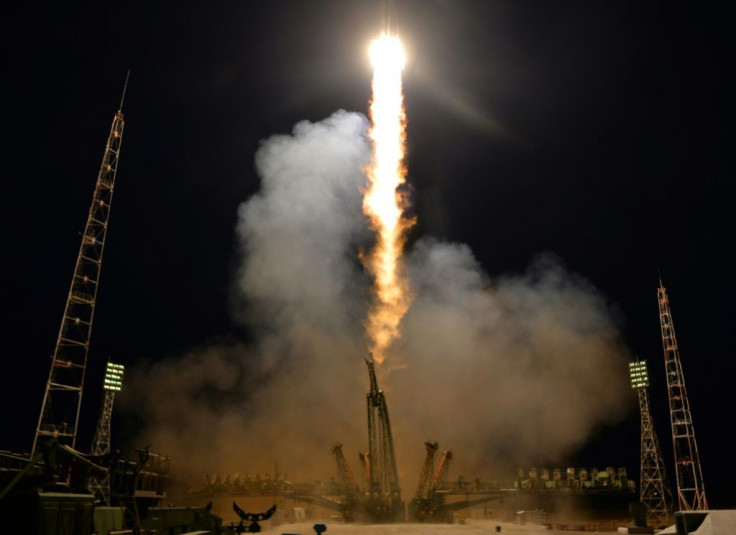Who Is Helen Sharman? First British Astronaut Believes Aliens Exist And May Already Be Among Us

KEY POINTS
- Helen Sharman made history as Great Britain's first astronaut in 1991
- Was selected from a field of 13,000 applicants to be part of Project Juno, a collaborative mission between Great Britain and the Soviet Union
- Said aliens living among us could be made of materials the human eye can't see
The first British astronaut said she believes that aliens are not only real but could already be living among humans.
“Aliens exist, there’s no two ways about it,” Dr. Helen Patricia Sharman told the Guardian in an interview published Sunday. “There are so many billions of stars out there in the universe that there must be all sorts of different forms of life. Will they be like you and me, made up of carbon and nitrogen? Maybe not. It’s possible they’re here right now and we simply can’t see them.”
This is not the first time Sharman has stated that she believes aliens existed. In 2014, she was asked if there was extraterrestrial life on other planets and she responded: "there must be."
Sharman, 56, made history in May of 1991 as the first English astronaut to go to space.
Born in Sheffield, England, in 1963, she was selected to serve as Great Britain’s first space explorer as part of Project Juno, a collaborative mission between Great Britain and the Soviet Union. Sharman applied for the program after hearing a radio advertisement and was one of four selected live on ITV on Nov. 25, 1989, out of over 13,000 applicants.
Sharman was sent to the Soviet Union with the other three candidates to begin training. Two of the candidates were eventually sent home while Sharman continued training at Star City, Russia.
After completing her training, Sharman was ultimately selected as Great Britain’s representative in the Soyuz-12 launch on May 18, 1991. She would spend eight days in space as the crew resupplied the Soviet Union’s space station, Mir, before returning to Earth on the Soyuz-11 on May 26, 1991.
Sharman is a chemist and recently headed the science, engineering and computing faculty at Kingston University in southwest London and currently is the Operations Manager for the Chemistry Department at Imperial College London.
“Being in space taught me that it’s people, not material goods, which truly matter,” Sharman said. “Up there we had all we needed to survive: the right temperature, food and drink, safety. I gave no thought to the physical items I owned on Earth. When we flew over specific parts of the globe, it was always our loved ones we thought of down below us.”
© Copyright IBTimes 2025. All rights reserved.





















